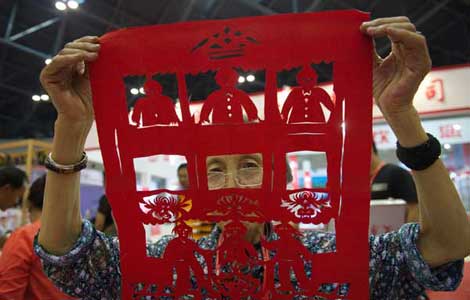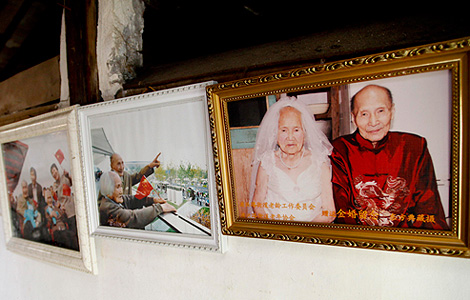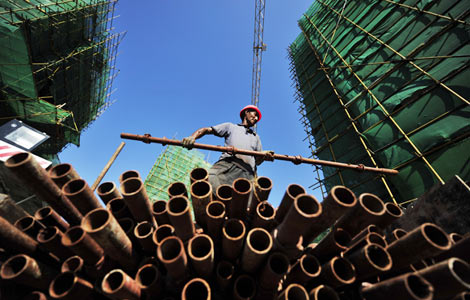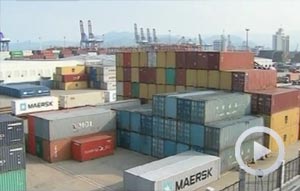China OKs first non-official iron ore platform
Updated: 2013-07-08 17:04
(Agencies)
|
||||||||
SHANGHAI - China's first non-official physical iron ore trading platform will begin operations on Tuesday, four years after it was shut down, in a further sign that the government is relaxing its tight grip over imports of the raw material.
China, which buys around two-thirds of global seaborne iron ore, already scrapped a decade-old iron ore import licensing system at the start of this month, eliminating middlemen and cutting costs for domestic steel mills.
The moves appear to mark the end of years of attempts by China to strictly regulate the iron ore trade due to worry over its growing dependence on imports, and are in line with efforts by Beijing to reduce government interference in the market.
The new platform, which will operate out of the coastal city of Rizhao, will be launched on Tuesday, shareholders and traders said.
It will be the third new platform to start in just over a year to help market participants hedge increasingly volatile iron ore prices, although trading on the existing China Beijing International Mining Exchange (CBMX) and Singapore-based globalORE has been fairly light.
The Rizhao platform was first set up by large privately owned traders in 2009, but was closed by the China Iron & Steel Association industry body before it started operation due to concerns that it would introduce speculation and destabilise the "benchmark" mechanism then used to set annual iron ore prices.
Prospects for the platform were boosted in January when a state-owned company, China Railway Materials Group Co Ltd, a large iron ore and steel trader, took a major stake.
Trades will initially be settled mainly in yuan, helping traders to sell their inventories sitting at ports, sources with direct knowledge of the situation said.
"We will sell our cargoes via the platform as the main shareholder," a senior executive with a trading subsidiary of China Railway Materials Group told Reuters.
"This will allow everyone to have easier access to materials and the opening-up of the import market will be a major trend," he said.
The executive said it was still too early to predict the transaction volume.
Some traders that Reuters spoke to said they wanted to become familiar with the new platform's trading rules before deciding whether or not to take part.
"Logistically, the platform should be able to attract a lot of business since Rizhao is a major iron ore port," said Helen Lau, analyst for metals and mining at UOB-Kay Hian Securities in Hong Kong.
"This makes pricing more transparent for iron ore in China and if backed by liquidity should boost price discovery in the Chinese market."
Trading on iron ore platforms has so far been relatively small. Since its launch in May last year, the CBMX had hosted 14.65 million tons of trade by last week, according to data from the exchange.
GlobalORE, which was launched at the same time, has traded a total of nearly 14 million tonnes, traders said.
About 1 billion tons of seaborne ore is traded globally each year, and China imported about 744 million tons last year, with pricing now determined by benchmarks produced by Platts, Metal Bulletin and the Steel Index, who collect information on deals from market participants.
From a peak of nearly $200 a tonne in February 2011, iron ore .IO62-CNI=SI hit a three-year low of $86.70 last September. Now at just above $120, the price is on track to end down for a second year in three.
Most Viewed
Editor's Picks

|

|

|

|

|

|
Today's Top News
Boeing 777 passenger 'mumbled a prayer'
Ex-minister gets suspended death
Workers return after dispute
Job seekers should be cautious abroad
River pollution sparks criticism
Terror attack was planned: suspect
Booming security industry needs skilled youth
A bright future for native black pigs?
US Weekly

|

|














